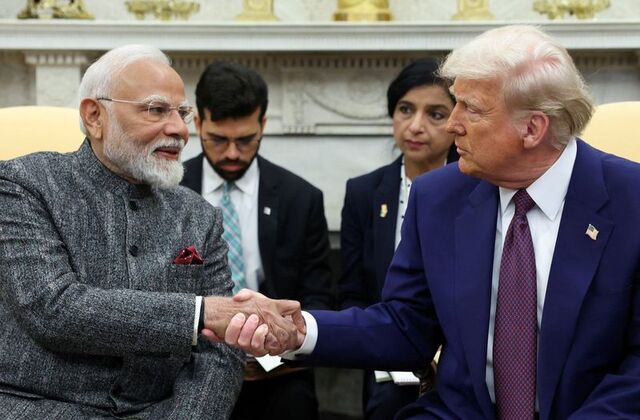Former US President Donald Trump has called on the European Union (EU) to join the United States in imposing tariffs of up to 100% on India and China. Both countries are among the largest importers of Russian crude oil, and the move is intended to increase pressure on Moscow to end its war in Ukraine.
Trump’s Proposal During US-EU Meeting
Trump reportedly made the request while dialing into a meeting between senior US and EU officials in Washington. The discussion focused on strategies to reduce Russia’s revenue from oil exports that fund its military operations in Ukraine.
A US official said, “We’re ready to go immediately, but only if our European partners cooperate.” Another official noted that the US could mirror any EU tariffs, which could lead to a sharp rise in duties on imports from India and China.
Currently, the US has already imposed:
-
50% tariffs on Indian goods
-
30% tariffs on Chinese exports
Trump’s Goal: Restrict Russian Oil Revenue
Trump emphasized that dramatic tariffs should remain in place until China stops buying Russian oil, arguing that alternative markets for the oil are limited.
This proposal follows Trump’s threats of additional sanctions on Russia after the Kremlin conducted a large-scale aerial attack on Ukraine. The move also targets nations that continue purchasing Russian oil, aiming to cut off funding for Putin’s war.
Contradictions and Recent Diplomacy
Trump’s latest remarks came shortly after Prime Minister Narendra Modi met Chinese President Xi Jinping and Russian President Vladimir Putin at the recent SEO summit.
Despite his hardline stance, Trump previously stated that the US-India trade negotiations would reach a “successful conclusion”. In a post on Truth Social, he wrote:
“I am pleased to announce that India and the United States are continuing negotiations to address trade barriers. I look forward to speaking with my friend, Prime Minister Modi, in the upcoming weeks, and I am confident of a positive outcome for both nations.”
Implications for Global Trade
If implemented, the proposed tariffs could significantly impact global trade flows and oil markets, particularly in Asia. Analysts say the move could escalate tensions between the US, India, and China while increasing economic pressure on Russia.















